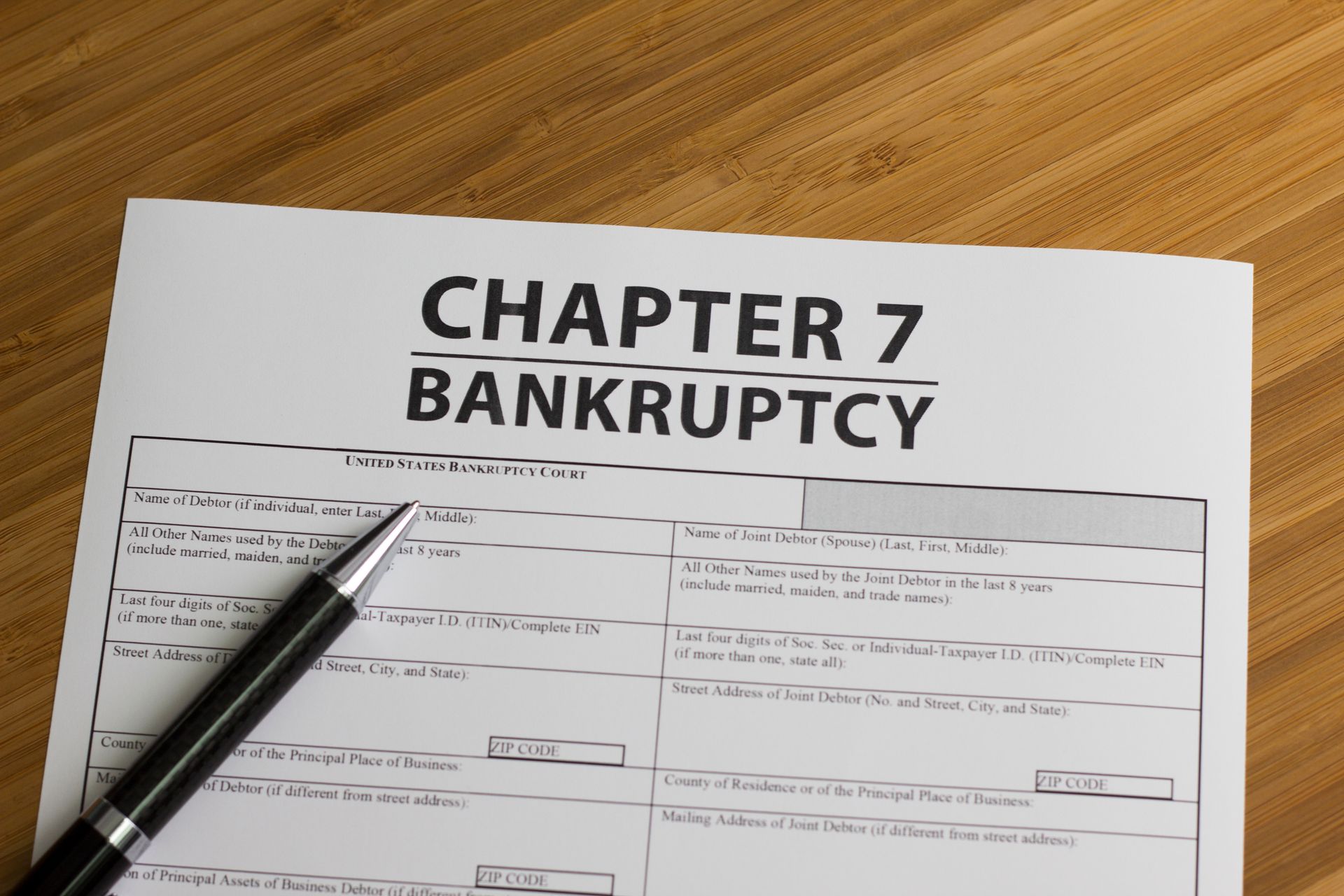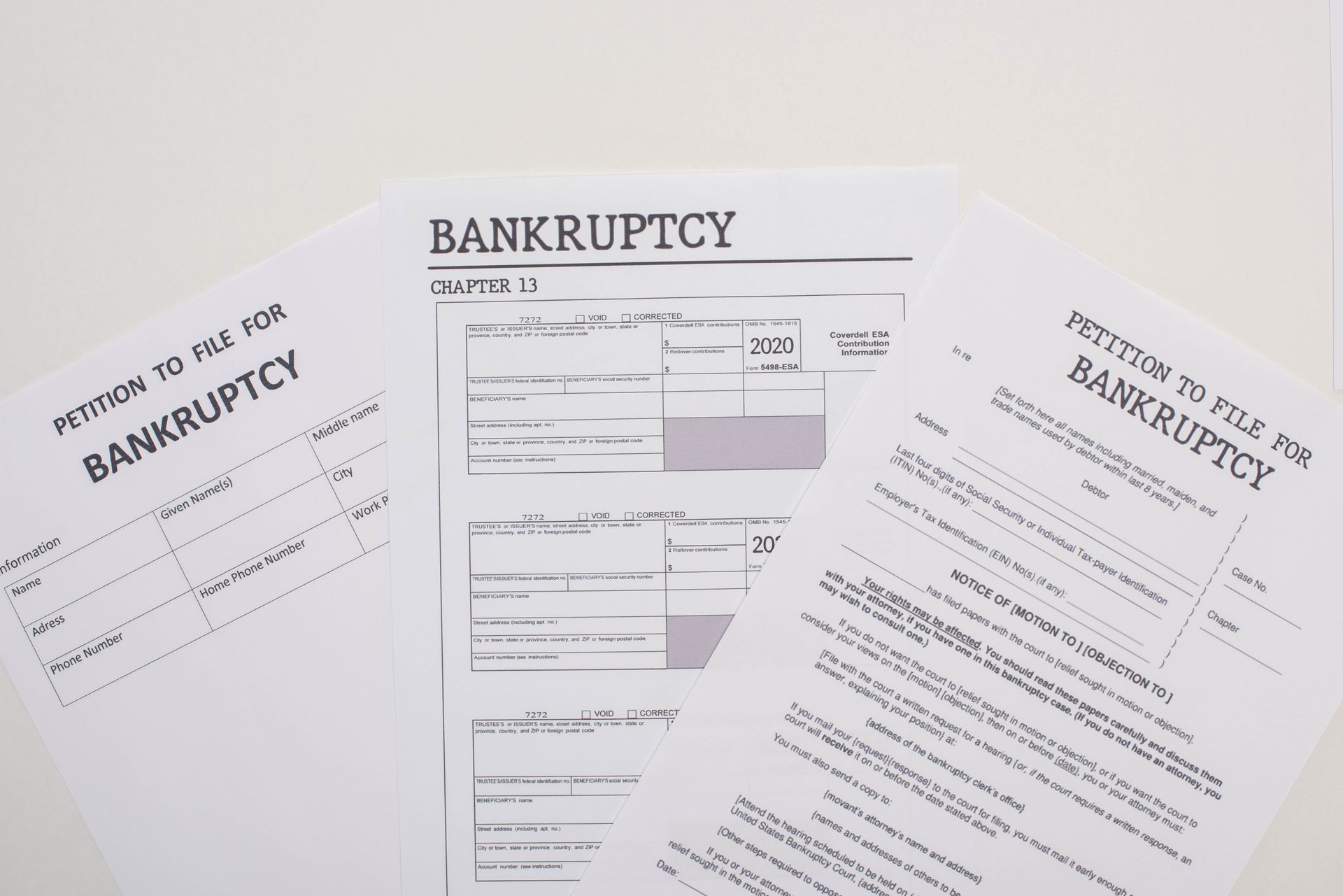Hours
- Mon - Fri
- -
- Sat - Sun
- Closed
Evening And Weekend
Appointments Available
Chapter 7 vs Chapter 13 Bankruptcy: Which Is the Right Choice for You?
Chapter 7 vs Chapter 13 Bankruptcy: Which Is the Right Choice for You?
Bankruptcy is a legal process that can help individuals and businesses eliminate or repay debts under the protection of the Federal Bankruptcy Law. Bankruptcy can be a stressful and emotional decision, but knowing the difference between Chapter 7 and Chapter 13 bankruptcy can help determine which is the best solution for your financial situation. The choice of bankruptcy chapter is ultimately dependent on several factors such as income, debt, and assets. In this blog, we will clarify the difference between Chapter 7 bankruptcy versus Chapter 13 bankruptcy and who should file for Chapter 13 bankruptcy.
Chapter 7 bankruptcy is also known as a liquidation bankruptcy and is the most common type of bankruptcy filed. In a Chapter 7 bankruptcy, the debtor turns over all non-exempt property to a bankruptcy trustee who sells the property and distributes the proceeds to the creditors. This process takes about three to six months and, during this time, creditors are prohibited from collecting debts. However, it is important to note that not all debts qualify for discharge in Chapter 7 Bankruptcy. Non-dischargeable debts include student loans, taxes, child support, alimony payments, and debts incurred through fraud. In order to qualify for Chapter 7, the debtor must meet the means test. This test determines whether an individual's income is below the median income in their state. If their income is above the threshold, then they may not be eligible for Chapter 7, and Chapter 13 bankruptcy may be a better choice.
Chapter 13 bankruptcy is a reorganization bankruptcy and suitable for those individuals who do not qualify for Chapter 7 bankruptcy due to their income or non-exempt assets. In a Chapter 13 bankruptcy, the debtor pays back a portion or all of their debts over a period of three to five years. Rather than selling assets, the debtor is allowed to keep all of their assets but is required to repay their creditors based on a court-approved repayment plan. The court approves this plan, which includes how much the debtor pays each month and for how long. Chapter 13 bankruptcy is suitable for individuals who have assets that they would like to keep because they cannot be protected under Chapter 7 bankruptcy. Additionally, individuals who want to pay their debts but need a payment plan can file for Chapter 13.
At Law Offices of Andrew F. McKenna, P.C., we can assist Colorado residents with bankruptcy matters. Our expert team of attorneys will provide individualized attention and support throughout the entire legal process. We understand that going through bankruptcy can be a challenging and emotional experience, and we are committed to helping each client achieve financial stability. We have extensive knowledge in bankruptcy law and will help determine which chapter is right for you, whether it be Chapter 7 or Chapter 13.
Choosing between Chapter 7 and Chapter 13 bankruptcy is a major decision that requires careful consideration and expert legal advice. Chapter 7 bankruptcy is suitable for people who do not have a regular income and have minimal assets. On the other hand, Chapter 13 bankruptcy is an ideal solution for individuals with a regular income and who want to keep their assets. At Law Offices of Andrew F. McKenna, P.C., we are committed to supporting Colorado residents throughout the entire bankruptcy legal process. Our team of experienced attorneys will provide you with personal attention and support to help you achieve financial stability. Contact us today to schedule your consultation.





Schedule a Case Evaluation
Contact us now!
Homepage FCE Form
We will get back to you as soon as possible.
Please try again later.
By submitting this form, you agree to be contacted by our law firm, either by phone, text or by email.
Hours
- Mon - Fri
- -
- Sat - Sun
- Closed
Evening And Weekend
Appointments Available
We are a debt relief agency. We help people file for bankruptcy relief under the Bankruptcy Code.
The information on this website is for general information purposes only. Nothing on this site should be taken as legal advice for any individual case or situation. This information is not intended to create, and receipt or viewing does not constitute an attorney-client relationship.
All Rights Reserved | Law Offices of Andrew F. McKenna, P.C. | Powered By Convert It Marketing | Privacy Policy
All Rights Reserved | Law Offices of Andrew F. McKenna, P.C. | Powered By Convert It Marketing | Privacy Policy





